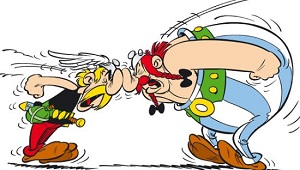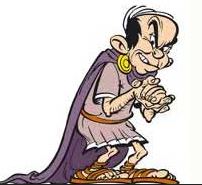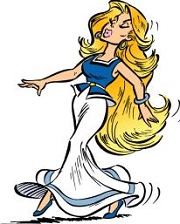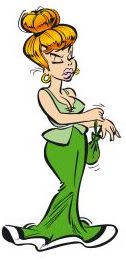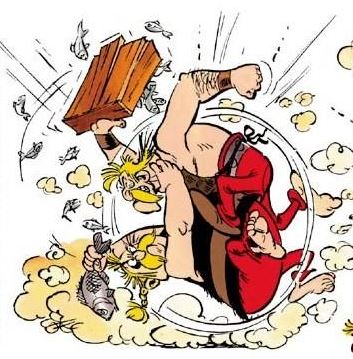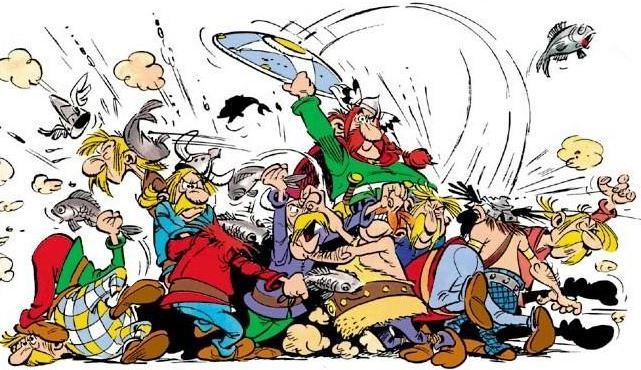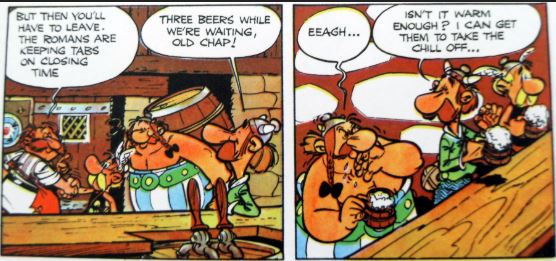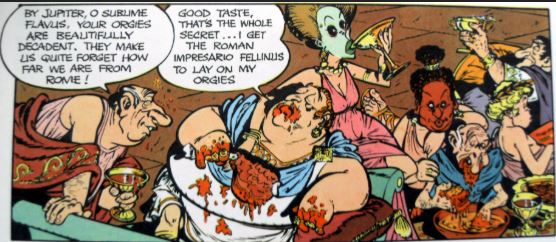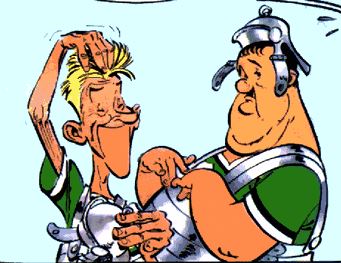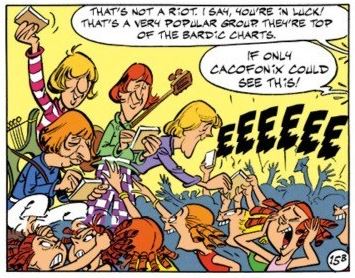Over the past weekend I watched Trumbo, the story of the Marxist screenwriter blacklisted by Hollywood during the Red Scare back in the 1950s. To say that I watched it with a jaundiced eye would be a very big understatement, because I suspected (just from the trailer) that the movie would just be one big blowjob for both Dalton Trumbo and his merry little band of Commiesymps who infested Hollywood back then.
And it was. Needless to say, the movie made villains of the conservatives who opposed the Marxist infiltration: people like John Wayne and Hedda Hopper in particular, Wayne because Wayne, and Hopper because she had a son serving in the U.S. Navy during the Korean War. Of course Wayne was made out to be a bully and Hopper a vindictive bitch — and the Senators and Congressmen who haled the Commies in front of the Senate and House Un-American Committee (HUAC) were depicted as ideological purists who saw Communists behind every bush — even though, in the case of Hollywood, there were Commies behind every bush at the time.
Of course, much was made of the fact that being a Communist wasn’t actually illegal (then, and now), and Trumbo made a great show of this being a First Amendment issue — which it was — and how these Commies all wanted to improve America, but of course there were evil right-wingers like Wayne, Joe McCarthy and HUAC harassing them at every turn.
The execution of the traitors Julius and Ethel Rosenberg got a little puff piece in the movie, which didn’t — couldn’t — actually say they weren’t not guilty of treason espionage, so it was brushed over with the throwaway that it was the first execution for esionage in peace time, as though peace time should give espionage a pass. And if that wasn’t enough, the Rosenberg children were paraded around as sympathy magnets — as they still are — because Communists have no problem using children to serve their own purposes.
Anyway, it all ended well because a few courageous moviemakers flouted the blacklist and finally posted Trumbo’s name in the screenwriting credits for Exodus and Spartacus.
Which brings me to my main point. I think we can all agree that blacklists are iniquitous — essentially, blacklists mandate the suppression of people’s livelihoods just for holding unpopular opinions or beliefs. It’s a good thing that Trumbo never wrote the word “nigger”, “queer” or “lesbo” in any of his screenplays, or else his work would be on another blacklist, this time drawn up by the humorless and wokey censors that are everywhere prevalent in show business, academia, government and corporations. (That these sensitive, censorious souls are proud to call themselves Communists — I’m sorry, democratic socialists or anti-fascists — is an occasion for mirth, irony and satire, but of course ideologues, Marxists most of all, are characterized by a singular lack of a sense of humor.)
So here we are, in a full circle: people are denied consideration for employment for their political beliefs; employers get rid of people with contrary political beliefs; and institutions are being forced to implement policies that parrot the “party line” or The Narrative (take your pick).
But here’s the essential difference between the 1950s-era blacklist and that of the 2010s. When people fought back against Communism encroachment into the American polity and culture, it wasn’t because they were “fascists” or “right-wingers”; it was because the truths of life under Communism were everywhere to be seen: gulags and the KGB in the Soviet Union, poverty, murder and corruption in socialist Third World countries, and rampant misery in all — all — the countries behind the Iron Curtain. There was a very good reason to prevent Communism from taking hold here.
Now? There are no examples of actual “fascism” in America, and to any Black person from the 1880s through the 1950s, the wokeist accusations of modern-day “systemic racism” would cause loud laughter and a shaking of the head. The only ills that modern-day Communism would seek to cure are largely imaginary, a product of a mindset that demands “safe spaces”, “freedom from hate” and “Black(-only) Lives Matter”.
One thing that does interest me, purely as an intellectual exercise: would the late Dalton Trumbo agree with what’s going on with the modern-day blacklist? If he didn’t — assuming he could see the parallels between his predicament in the 1950s with “wrongthinkers” of today — I would hope that he’d employ the same passionate arguments and his legendary scorn against today’s blacklist as he did for his own.
If, however, Trumbo didn’t come out against today’s blacklist and even supported its aims, then I would suggest that his blacklisting in the 1950s was fully justified.






